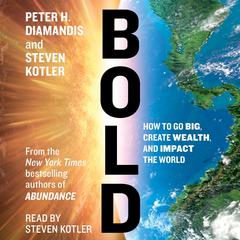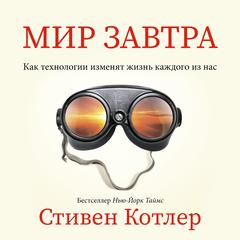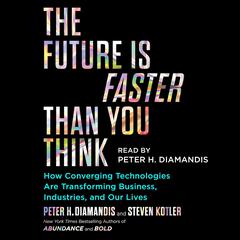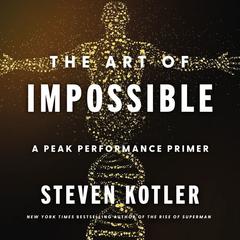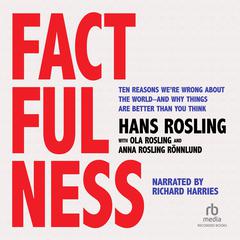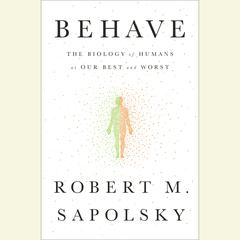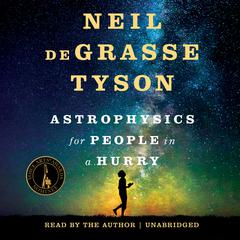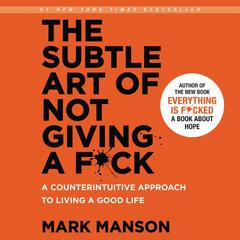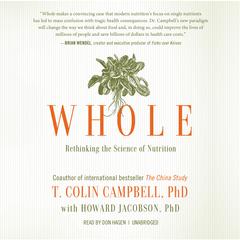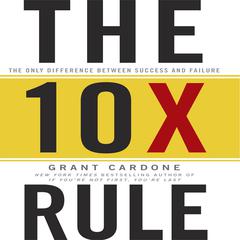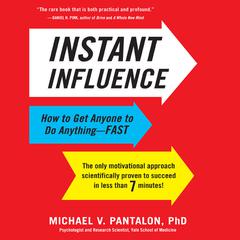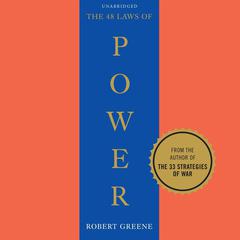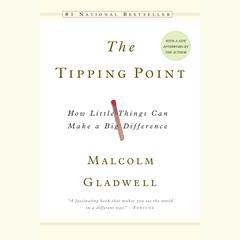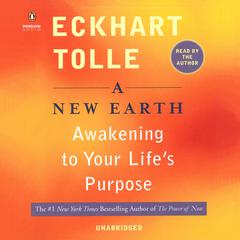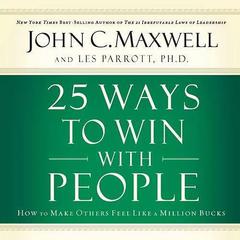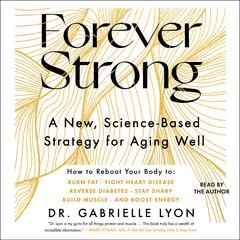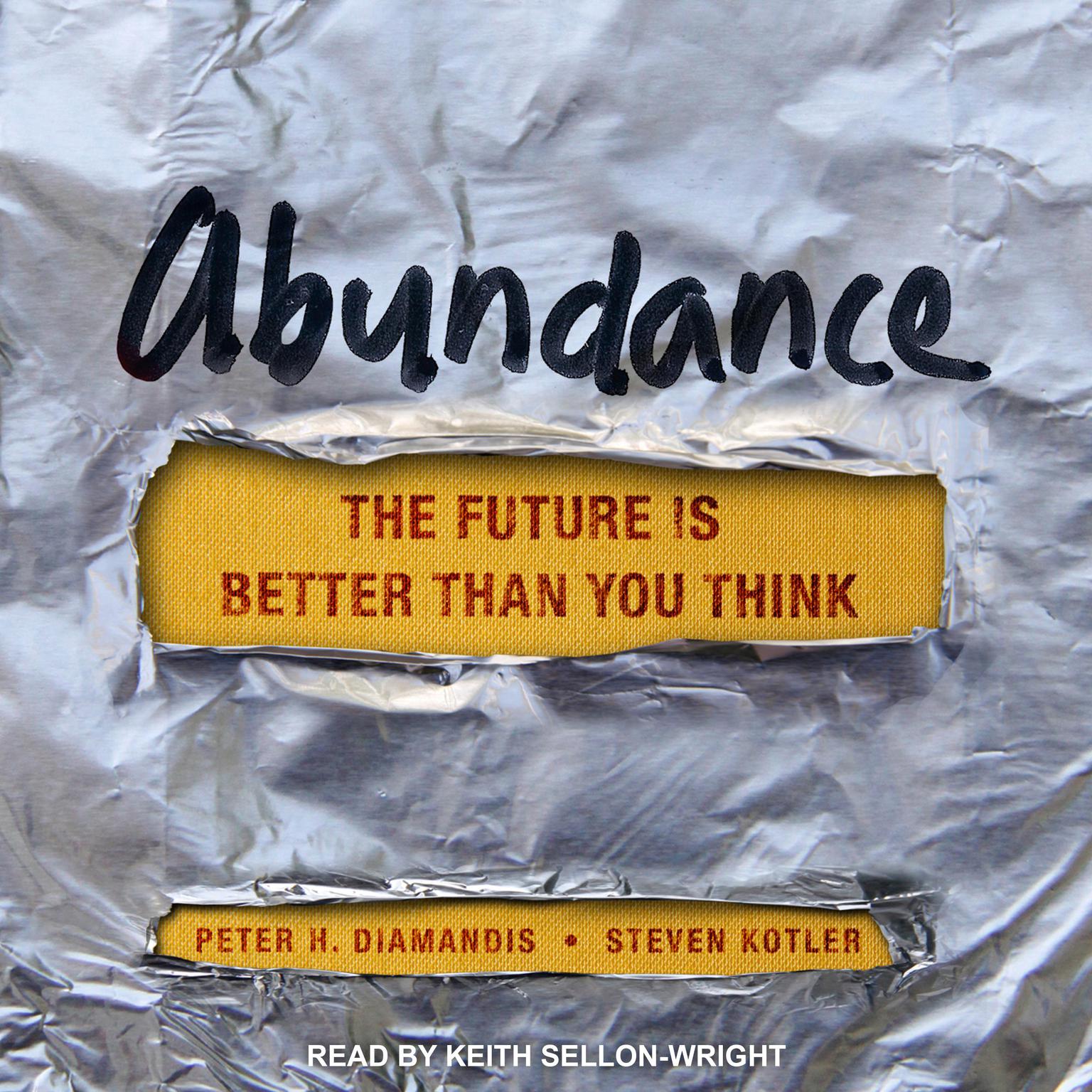 Play Audiobook Sample
Play Audiobook Sample
Abundance: The Future Is Better Than You Think Audiobook
 Play Audiobook Sample
Play Audiobook Sample
Quick Stats About this Audiobook
Total Audiobook Chapters:
Longest Chapter Length:
Shortest Chapter Length:
Average Chapter Length:
Audiobooks by this Author:
Plot Summary
Soon, we will have the ability to meet and exceed the basic needs of every human being on Earth. Abundance for every man, woman and child is within reach. This spirited and contrary perspective, supported by extensive investigation, presents our immediate future, where rapidly expanding technology, along with other important developments, are coming together to create a new narrative for mankind, improving the lives of billions of people around the world. Abundance: The Future Is Better Than You Think is a cure for cynicism by philanthropist and tech entrepreneur Peter H. Diamandis and acclaimed scientific author Steven Kotler.
Since the beginning of human history, an elite class have lived privileged lives, in contrast to the hardscrabble masses. Conventional wisdom dictates that this can not be changed. But it is changing, and quickly. The authors explain how the forces of exponential technologies, the techno-philanthropist, the do-it-yourself innovator, and the rising billion are forming a perfect storm that will solve mankind's greatest dilemmas. Abundance sets clear goals for change and draws a strategic road map for entrepreneurs, industry and government, leaving pessimism by the roadside.
Steven Kotler is an journalist and author. His books include A Small Furry Prayer, West of Jesus, and The Angle Quickest for Flight. His articles have appeared in more than sixty publications, including Wired, The New York Times Magazine, GQ, National Geographic, and Discover. He also contributes to Psychology Today.
Peter H. Diamandis is the Chairman and co-founder of Singularity University, CEO and Chairman of the X PRIZE Foundation, and the founder of more than a dozen tech firms. Diamandis has degrees in aerospace engineering and molecular genetics from MIT, and an M.D. from Harvard Medical School.
"This book was very well synthesized and brought together relevant information from many different fields. It was definitely worth my time to read. However, as a die-hard pessimist, I remain unconvinced that we're not all going to suffer severely from being on the downside of the peak oil bell curve and the upside of overpopulation. Many of the solutions offered in this book are entirely reliant upon capital investment. Who ever heard of investing capital for the betterment of humanity? In order for these solutions to work, people with money will either have to be convinced that these innovations will benefit them directly or will actually have to start having empathy. It's the rare entrepreneur who is both successful and empathic."
— Melissa (4 out of 5 stars)
Publisher Summary
The New York Times bestselling "manifesto for the future that is grounded in practical solutions addressing the world's most pressing concerns: overpopulation, food, water, energy, education, health care and freedom" (The Wall Street Journal).
Since the dawn of humanity, a privileged few have lived in stark contrast to the hardscrabble majority. Conventional wisdom says this gap cannot be closed. But it is closing—and fast.
In Abundance, space entrepreneur turned innovation pioneer Peter H. Diamandis and award-winning science writer Steven Kotler document how progress in artificial intelligence, robotics, digital manufacturing synthetic biology, and other exponentially growing technologies will enable us to make greater gains in the next two decades than we have in the previous 200 years. We will soon have the ability to meet and exceed the basic needs of every person on the planet. Abundance for all is within our grasp.
Breaking down human needs by category—water, food, energy, healthcare, education, freedom—Diamandis and Kotler introduce us to innovators and industry captains making tremendous strides in each area.
Download and start listening now!
Abundance Listener Reviews
- — Niyousha, 12/11/2020
-
" Idealistic vision of what the exponential growth of technology could do for the world. "
— Goshen, 2/18/2014 -
" An exciting look at the future. Lately I see two competing views of the future, one of abundance, the other of crisis and shortages. I prefer optimism, but I am undecided as to which will come to pass. "
— Cyrus, 2/4/2014 -
" Exhilarating read through cutting edge thinking, engineering, and the quest for social justice. My Christmas gift to all readers. "
— Marian, 2/2/2014 -
" I heard others describe their guarded book review, with the caveat that the authors' failed to recognize social class divisions. I think the authors' not only recognize social class divisions, but fully describe examples of how the poorest billion (described in another book, The Bottom Billion...by Paul Collier) could be benefit from new technological advances with minimal costs to them. The book is a breath of fresh air from the plethora of dystopian media that seems to be so pervasive and cites a multitude of ongoing research examples that do not seem to make the light of day in mainstream news. "
— Kenneth, 1/11/2014 -
" This is the book that every neo-Malthusian needs to put in their tightly-clenched and quivering fist. It's optimism is a breath of fresh air in the 24-hour doomsday news cycle and it is delivered without whimsy or fantasy. It will appeal to the science and tech nerds who will grin from ear-to-ear over the technology that sits just over the horizon and is being developed as we speak. Diamandis' central thesis is that we don't lack for natural resources (energy, drinkable water, etc) but that we simply lack access to them and our hurdles are closing this access gap. A must-read for futurists, economics geeks, and science-y people in general. "
— Pfloyd, 12/30/2013 -
" Attends to the technological progress of our times, with much hopeful detail. Too briefly addresses the physical limits we will face. "
— Brian, 12/29/2013 -
" An antidote to liberal malaise and pessimism. Some of the example companies have failed or folded, but the larger points remain worth considering. "
— Jonathan, 12/14/2013 -
" A fantastic read - and bizarre to be reading something so incredibly optimistic. Makes me think that I too should be trying to change the world - or perhaps get something else to drink. But seriously, well written with good ideas and charts and statistics. "
— Mitchell, 12/11/2013 -
" I didn't finish this book. I wanted to. I really did. I love the idea and it makes sense to me. It was just too technical and after renewing it twice and still having it get passed due before finishing, I gave up and turned it back in. "
— Allison, 9/16/2013 -
" This book open my mind to think in a different way. The only downside is that sometimes can be repetitive. An excellent reading for all the people that are afraid of the future. "
— Gabino, 9/11/2013 -
" The future could be bright. This book about the global social impact (past, current, and future) of technology and its implications makes for interesting reading. "
— Dan, 4/25/2013 -
" Pollyannaish and politically correct but contains many interesting insights into the near future. "
— Jason, 3/3/2013 -
" Basically 'The Rational Optimist Redux.' "
— Rob, 2/7/2013 -
" The answer to abundante is tecnology "
— Carlyle, 9/6/2012 -
" This book will likely put you in a good mood. Fascinating stuff. "
— Kevin, 8/16/2012 -
" Lots of data about world issues and how we have the capability to solve them. If you are looking to start a company this book may prompt an idea or two. "
— Matthew, 8/15/2012 -
" Excellent book. A very positive book to read that will inspire thoughts of our potential future rather that negativism todays media seems to take us. "
— Kaye, 6/12/2012 -
" Good - but duplicates much of what Matt Ridley talks about in Rational Optimist. Probably would have rated it 4 or 5 stars if I'd stopped at page 250 or 275. The examples/illustrations to me seemed too ponderous and too many. My reaction was "ok - I've got the point". "
— Howard, 5/19/2012 -
" Authors have interesting points but end up often stretching the truth and misleading the reader. Unfortunate approach for what is an otherwise interesting thesis. Truth would make it better. "
— Frank, 5/12/2012
About the Authors
Steven Kotler is a New York Times bestselling author, an award-winning journalist, and the executive director of the Flow Research Collective. He is one of the world’s leading experts on human performance. He is the author of more than a dozen books, including The Art of Impossible, The Future Is Faster Than You Think, and Abundance. His work has been nominated for two Pulitzer Prizes, translated into over forty languages, and has appeared in over 100 publications, including the New York Times Magazine, Wired, Atlantic Monthly, Time, and the Harvard Business Review. He is the cohost of Flow Research Collective Radio, a top-ten iTunes science podcast. He is the founder, along with his wife, of the Rancho de Chihuahua, a hospice and special needs dog sanctuary.
Peter H. Diamandis is a New York Times bestselling author and the founder of more than twenty high-tech companies. In 2014 he was named one of the “World’s 50 Greatest Leaders” by Fortune magazine. He is the founder and executive chairman of the XPRIZE, executive founder of Singularity University, and the cofounder of Human Longevity, Inc., Celularity, and Bold Capital Partners. He attended MIT, where he received his degrees in molecular genetics and aerospace engineering, and Harvard Medical School, where he received his MD degree.
About Keith Sellon-Wright
Keith Sellon-Wright is an audiobook narrator and an actor with more than thirty years of experience in Hollywood. His television roles have included Frasier, Seinfeld, The West Wing, Mad Men, Parks and Recreation, Grey’s Anatomy, and Scandal. He also serves as a “voice of the New York Times,” narrating selected articles for their daily audio edition.





